climate justice
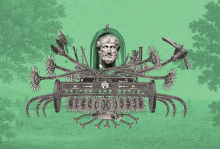
CHANGE IS DIFFICULT, great change even more so. Yet some things change naturally over time with seemingly little effort—the course of a river, the shore of an ocean, the direction a tree decides to grow. When humans interfere with the course of nature in an unnatural and thoughtless manner—such as by damming a river or clear-cutting a forest—we are bound to experience unknown and often unwanted consequences. But perhaps reverting to more natural systems of change will not be as difficult as we imagine.
Western civilization is just beginning to realize that nature is wiser and more powerful than we are and will, without a doubt, outlive us. She knows her mind, and she understands what keeps life in balance. Because today we seldom see nature in her unmolested glory, we rarely consider the degree to which Western civilization has changed that which is natural to what is now unnatural. Since time immemorial, Indigenous people have learned to observe natural change and tried to flow with it, or bend it to their benefit.
Now, like never before, we need people with keen observational skills to help us recover and retain the truths in nature. Indigenous wisdom’s long relationship with creation is based on an ethic of harmony, humility, and respect. Such efforts need not always contradict Western notions of science. Modern scientific methods often confirm the truths that our Indigenous teachers have always known. Science verifies what scientists observe. In more than one sense, our Indigenous elders have always been scientifically aware. Western scientists use tools that tell them the hydrological cycles have changed. Our elders know the huckleberries are ripening a month later than they always have. I have heard from elders in the past few years that our medicine plants are not nearly as potent as they used to be. They say the earth is weakening; an unnatural change has occurred. Western science has come to the same realization by explaining that as more carbon is released into the atmosphere, plants are less able to develop the nutrients needed. Both observe verifiable knowledge. But one is abstract while the other is personal. What modern science tells Western society about creation, our Indigenous “scientists” have been observing for millennia. What we can agree upon together is that the earth is changing, unnaturally, and it is not a good change.

I GREW UP IN Guatemala, a country where the Indigenous people make up more than 50 percent of the population. I was told growing up that my ancestors were Europeans (Spaniards and Italians). Even though I was identified as ladino (not Indigenous) by Guatemalan official nomenclature, I was attracted to Mayan languages and communities (K’iche’, Kaqchikel, and Q’eqchi’, among others).
I felt a resonance with their orientation toward the earth, their deep sense of communal cohesion, and their mystical world of ancestral spirits. After doing some genealogical work, I learned that one of my grandfathers was Mayan.
I began to notice practices and attitudes in my family that I was certain were of Indigenous origins: my dad’s idiosyncratic disregard for manufactured material goods in favor of plants; my uncle’s pouring of alcohol on the floor before serving a drink; my mom’s smoking of cigars as an invitation to the spirits and San Simón to be with us in our gatherings. All have an Indigenous provenance.
As I learned more, I recognized those familial practices as part of a millennia-old cosmovision and mindset, a way of viewing the cosmic order of a civilization through which Indigenous peoples organize everyday activities, even today. Each is a theo-ethical gesture for safeguarding their relationship with life itself, in all life’s diversity.

THE CLIMATE CRISIS is a moral crisis. What else should we call the willful choice to inflict hunger, disease, and suffering on those in the poorest circumstances?
At the same time, the climate crisis is an opportunity to allow God’s healing grace to enter our lives. As with every great failure of our collective conscience, the way forward begins with each of us standing up in faith and love to right the wrongs of the past. Around the world, faith communities are doing just that. As national governments fail to show the decisive and visionary leadership we need, faith communities are taking up the mantle of justice. Under the banner of the U.N.’s “race to zero” initiative, many faith communities are committing to meaningful changes in the way they operate to build a healthy, safe world that protects everyone.
It’s hard work, but it is the way of the future. In 50 years, the Earth’s fossil fuels will be depleted, and the world will no longer run on oil and gas. The only questions are how quickly we can make this change and whether we can make it well. Many faith institutions have chosen to put their pocketbooks to greater service by divesting from fossil fuel companies and reinvesting in clean renewable energy. To date, nearly 400 faith-based institutions have divested, constituting the single largest source of commitments in the global divestment movement. Committed institutions range from huge international networks to small communities of women religious, around the globe. It’s a big movement that is successfully pressuring oil companies to think beyond the status quo.

RIGHT THERE ON page one, it explains that our job is to exercise careful dominion over the planet, which God has just made and found good. It’s literally job one.
So let’s just list a few of the things that have happened over the last four years in this country to see how we’re doing. The administration has, according to The New York Times:
Dramatically weakened the fuel-economy standards for cars and trucks; canceled a requirement that oil and gas companies even report their methane emissions, at precisely the moment that methane emissions (a key greenhouse gas) are soaring; weakened federal rules to prevent air pollution in national parks; withdrawn from the Paris climate accords, the only global effort to slow climate change; shrunk national monuments to allow for more oil drilling; pushed through plans for pipelines despite massive resistance from farmers, ranchers, and Native Americans in their path; permitted the use of seismic air guns for oil and gas exploration in the Atlantic, despite the danger to marine life that had led to a ban; opened the Arctic National Wildlife Refuge (the largest wildlife refuge in the country) to oil and gas drilling; revoked Obama-era flood standards for new federal projects requiring that sea level rise be considered; reversed Obama-era rules on sport hunting so that it’s now legal to bait grizzly bears with grease-soaked doughnuts; revoked a rule preventing coal companies from dumping mining debris in streams; blocked plans to mandate more efficient light bulbs; stopped payments we’d promised to the Green Climate Fund, which is designed to help poor countries reduce carbon emissions; and restarted the sale of plastic bottles in national parks. Believe me, I could go on.

WHILE THE CLIMATE crisis has reconfigured our relationships with each other, other creatures, and our places, fiction has not. It remains focused on the human’s internal, moral journey, as if human life is something circumscribed from the rest of creaturely life. Gun Island is a much-needed antidote to the anthropocentric ideal of the novel, one that meets the age of climate change with stories that are true to the new dimensions of relationships unfolding around us.
In his first novel since his nonfiction masterpiece The Great Derangement, in which he laid out a vision for a climate-changed literature, Ghosh illustrates the agency of nature: how in this Anthropocene age, shaped by human activity, our porous lives are intertwined with those of our nonhuman interlocutors, who become increasingly present in our lives through climate-change-driven typhoons, fires, and species migration. He tells a story of stories, not recasting the tales of modernity, but reaching back into Bengali folklore to guide us through this uncanny age. For, as one of Gun Island’s characters says, “Only through stories can invisible or inarticulate or silent beings speak to us; it is they who allow the past to reach out to us.”
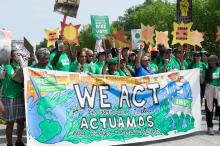
“The communities that suffer environmental injustices that affect their underlying illnesses have higher rates of pulmonary diseases, which render them more at risk of dying from COVID-19,” said Rep. Raul Ruiz, D-Calif., who authored legislation upon which the provision is based. Ruiz said the environmental justice grant programs need to be codified because “you never know” which administration will neglect or defund the programs.

Catholicism, COVID-19, and caring for our common home.
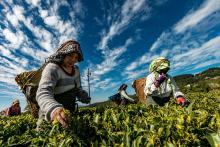
We must listen to women, pay attention to on-the-ground solutions they are already creating, and earnestly follow that leadership at all levels of environmental decision-making.
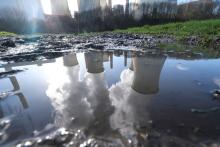
We can make radical change more quickly than we imagined. COVID-19 and climate change demand nothing less.
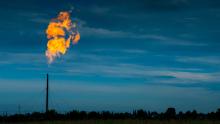
The religious community shares a moral responsibility to protect others from the harms of methane pollution and the devastation of climate change. it is our moral responsibility to act now. We must stand for the health of all humanity and work to limit methane pollution in our communities, especially among the most vulnerable.
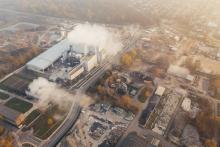
A report today released by the United Church of Christ identifies the nation’s “Toxic 100” super polluters, naming the factories and facilities responsible for nearly half the toxic air emissions in hundreds of neighborhoods across 28 states. Alongside the report, Breath to the People: Sacred Air and Toxic Pollution, the UCC provides an interactive map, because they believe parents have the right know where these polluters operate. Like toxic water, toxic air is irreversibly harming children across our nation.
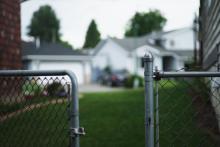
On-the-ground solutions to environmental challenges are becoming the most effective and practical strategy. Cities today are leading the way on climate resilience strategies, which are specific to the city’s infrastructural, geographic, spatial and topographic makeup, through initiatives like 100 Resilience Cities and Climate Ready programs, which help cities prepare for the long-term impacts of climate change.

The past decade is almost certain to be the hottest on record, weather experts warned on Tuesday, painting a bleak picture of vanishing sea ice, devastating heatwaves, and encroaching seas in a report launched at a climate summit in Spain.
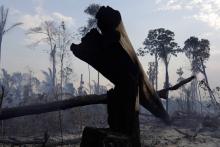
Among Christians in the United States, evangelicals are least likely to believe that climate change is real and human caused, according to public opinion polls and academic research. This is not the case in Brazil. There, evangelicals and Pentecostals – who make up about 30 percent of the Brazilian population – are just as environmentally concerned as other religious groups, public opinion surveys show.
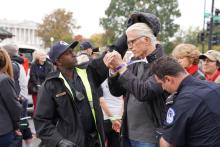
There is no such thing as staying out of politics.

Honoring the labor, expertise, and material resources used to make clothes is an essential way to honor God.
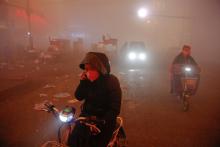
The Trump administration has formally notified the United Nations that it will withdraw the United States from the Paris Agreement, the first formal step in a one-year process to exit the global pact to fight climate change, U.S. Secretary of State Mike Pompeo confirmed on Monday.

The Bay Area will be without electricity for at least a day and a half in order to prevent power lines from sparking wildfires.
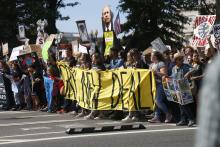
On Sept. 20, youth activists led a climate strike march in Washington, D.C. in solidarity with millions of other young people striking around the world today. Thousands of youth organizations, activists, and protesters gathered at John Marshall Park and marched to the Capitol to mobilize action for the current climate crisis. Today's global climate strikes kick off an upcoming week of international climate action that will address the necessary steps towards change. These are photos from the event.
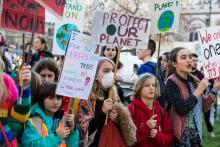
On Friday, Sept. 20, driven by our faith and by our profound concern about climate change, we will be joining young people from around the world in a climate strike. We will join with youth who, frightened by the impact that a hotter planet will have on their lives and angry that adults have done so little in response, are demanding that world leaders take transformative action to address the emergency that we face. Millions of us will take to the streets to demand a right to a future for generations to come.